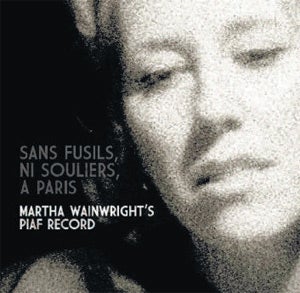Your support helps us to tell the story
From reproductive rights to climate change to Big Tech, The Independent is on the ground when the story is developing. Whether it's investigating the financials of Elon Musk's pro-Trump PAC or producing our latest documentary, 'The A Word', which shines a light on the American women fighting for reproductive rights, we know how important it is to parse out the facts from the messaging.
At such a critical moment in US history, we need reporters on the ground. Your donation allows us to keep sending journalists to speak to both sides of the story.
The Independent is trusted by Americans across the entire political spectrum. And unlike many other quality news outlets, we choose not to lock Americans out of our reporting and analysis with paywalls. We believe quality journalism should be available to everyone, paid for by those who can afford it.
Your support makes all the difference.As with her brother Rufus's tribute to Judy Garland, Martha Wainwright's tribute to Edith Piaf is the kind of album project one can admire, but without ever wanting to hear it again.
Produced by the great Hal Willner, with clever arrangements by various members of the nine-piece backing band, it's an impeccably rendered set recorded live in New York. And Martha's flamboyant, mannered delivery slips easily between strident and intimate as she tackles the songs with suitable drama – on "Marie Trottoir", it's more like acting than singing. But the big, blustery emotions, riding the rolling waves of piano, horns and strings in songs such as "Adieu Mon Coeur", "L'Accordéoniste" and "Non, La Vie N'est Pas Triste", can leave one feeling a little queasy. The most effective example is probably "Une Enfant", where the urgent verses are heralded by windswept wails and punctuated with more restrained choruses. But overall, the softer, less dramatic pieces are preferable: "Soudain Une Vallée" is gently suggestive rather than grandly emotive, and "C'est Toujours La Même Histoire" has a pleasingly reflective tone, with clarinet prominently poignant. No regrets, though, about there being no "No Regrets".
Download this Une Enfant; Les Grognards; Soudain Une Vallée

Join our commenting forum
Join thought-provoking conversations, follow other Independent readers and see their replies
Comments